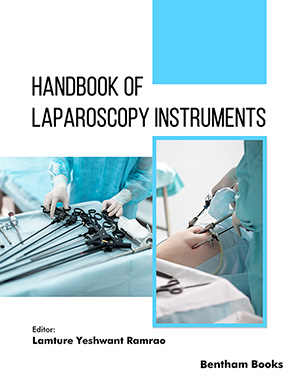Abstract
Having a family history of Alzheimer’ s disease (AD) may potentiate cumulative risk associated with phenotypic expression of the ε-4 allele of the apolipoprotein E (APOE) gene. In this study, we compared the genotype distribution and allele frequencies of APOE ε-2 (rs7412) and ε -4 (rs429358) in 537 South African individuals participating in a chronic disease screening program, in order to establish whether AD family history modulates the expression of their dyslipidemic effects. Significant differences in the genotype distribution for APOE ε-2 (p=0.034) as well as APOE ε-4 (p=0.038) were found between study participants with (n=67) and without (n=470) a family history of AD. LDL cholesterol levels were inversely associated with physical activity in the study group with a positive family history of AD (p<0.001) but not in those with a negative family history of AD (p=0.257). Similar to its existing use in the diagnosis of monogenic dyslipidemias such as familial hypercholesterolemia, clinical inquiry regarding family history was identified as an important determinant of eligibility for APOE genotyping performed in the context of chronic disease risk management. To our knowledge, this is the first study to demonstrate the modulating influence of AD family history on expression of a dyslipidemic phenotype associated with the APOE ε-4 allele. Our findings provide the scientific rationale supporting a novel clinical application for APOE genotyping as a means of identifying a genetic subgroup of dyslipidemic patients set to derive the greatest benefit from early lifestyle-based interventions aimed at decreasing cumulative risk for cardiovascular disease and prevention of AD later in life.
Keywords: Alzheimer’ s disease, apolipoprotein E, dyslipidemia, family history, genotype-phenotype association, personalized genomics.
Current Alzheimer Research
Title:Clinical Relevance of Apolipoprotein E Genotyping Based on a Family History of Alzheimer's Disease
Volume: 12 Issue: 3
Author(s): Hilmar K. Luckhoff, Theresa Brand, Dawid P. van Velden, Martin Kidd, Leslie R. Fisher, Susan J. van Rensburg and Maritha J. Kotze
Affiliation:
Keywords: Alzheimer’ s disease, apolipoprotein E, dyslipidemia, family history, genotype-phenotype association, personalized genomics.
Abstract: Having a family history of Alzheimer’ s disease (AD) may potentiate cumulative risk associated with phenotypic expression of the ε-4 allele of the apolipoprotein E (APOE) gene. In this study, we compared the genotype distribution and allele frequencies of APOE ε-2 (rs7412) and ε -4 (rs429358) in 537 South African individuals participating in a chronic disease screening program, in order to establish whether AD family history modulates the expression of their dyslipidemic effects. Significant differences in the genotype distribution for APOE ε-2 (p=0.034) as well as APOE ε-4 (p=0.038) were found between study participants with (n=67) and without (n=470) a family history of AD. LDL cholesterol levels were inversely associated with physical activity in the study group with a positive family history of AD (p<0.001) but not in those with a negative family history of AD (p=0.257). Similar to its existing use in the diagnosis of monogenic dyslipidemias such as familial hypercholesterolemia, clinical inquiry regarding family history was identified as an important determinant of eligibility for APOE genotyping performed in the context of chronic disease risk management. To our knowledge, this is the first study to demonstrate the modulating influence of AD family history on expression of a dyslipidemic phenotype associated with the APOE ε-4 allele. Our findings provide the scientific rationale supporting a novel clinical application for APOE genotyping as a means of identifying a genetic subgroup of dyslipidemic patients set to derive the greatest benefit from early lifestyle-based interventions aimed at decreasing cumulative risk for cardiovascular disease and prevention of AD later in life.
Export Options
About this article
Cite this article as:
K. Luckhoff Hilmar, Brand Theresa, P. van Velden Dawid, Kidd Martin, R. Fisher Leslie, J. van Rensburg Susan and J. Kotze Maritha, Clinical Relevance of Apolipoprotein E Genotyping Based on a Family History of Alzheimer's Disease, Current Alzheimer Research 2015; 12 (3) . https://dx.doi.org/10.2174/1567205012666150302154354
| DOI https://dx.doi.org/10.2174/1567205012666150302154354 |
Print ISSN 1567-2050 |
| Publisher Name Bentham Science Publisher |
Online ISSN 1875-5828 |
Call for Papers in Thematic Issues
New Advances in the Prevention, Diagnosis, Treatment, and Rehabilitation of Alzheimer's Disease
Aims and Scope: Introduction: Alzheimer's disease (AD) poses a significant global health challenge, with an increasing prevalence that demands concerted efforts to advance our understanding and strategies for prevention, diagnosis, treatment, and rehabilitation. This thematic issue aims to bring together cutting-edge research and innovative approaches from multidisciplinary perspectives to address ...read more
Current updates on the Role of Neuroinflammation in Neurodegenerative Disorders
Neuroinflammation is an invariable hallmark of chronic and acute neurodegenerative disorders and has long been considered a potential drug target for Alzheimer?s disease (AD) and dementia. Significant evidence of inflammatory processes as a feature of AD is provided by the presence of inflammatory markers in plasma, CSF and postmortem brain ...read more
Deep Learning for Advancing Alzheimer's Disease Research
Alzheimer's disease (AD) poses a significant global health challenge, with an increasing number of individuals affected yearly. Deep learning, a subfield of artificial intelligence, has shown immense potential in various domains, including healthcare. This thematic issue of Current Alzheimer Research explores the application of deep learning techniques in advancing our ...read more
Diagnostic and therapeutic biomarkers of dementia
Dementia affects 18 million people worldwide. Dementia is a syndrome of symptoms caused by brain disease, usually chronic or progressive, clinically characterized by multiple impairments of higher cortical functions such as memory, thinking, orientation, and learning. In addition, in the course of dementia, cognitive deficits are observed, which often hinder ...read more
 41
41 2
2 1
1
- Author Guidelines
- Graphical Abstracts
- Fabricating and Stating False Information
- Research Misconduct
- Post Publication Discussions and Corrections
- Publishing Ethics and Rectitude
- Increase Visibility of Your Article
- Archiving Policies
- Peer Review Workflow
- Order Your Article Before Print
- Promote Your Article
- Manuscript Transfer Facility
- Editorial Policies
- Allegations from Whistleblowers
- Announcements
Related Articles
-
Brain Senescence and Neuroprotective Dietary Components
Central Nervous System Agents in Medicinal Chemistry Utilization of the DaT-SCAN SPECT in the Diagnosis of Parkinson's Disease in Older Subjects
Letters in Drug Design & Discovery Meet Our Editorial Board Member:
Current Drug Safety Update of QSAR & Docking Studies of the GSK-3 Inhibitors
Current Bioinformatics The Multifactorial Nature of Alzheimer's Disease for Developing Potential Therapeutics
Current Topics in Medicinal Chemistry The Inverse Relationship Between Cancer and Alzheimer's Disease: A Possible Mechanism
Current Alzheimer Research Validity of Oxygen-Ozone Therapy as Integrated Medication Form in Chronic Inflammatory Diseases
Cardiovascular & Hematological Disorders-Drug Targets Thioflavin-S Staining of Bacterial Inclusion Bodies for the Fast, Simple, and Inexpensive Screening of Amyloid Aggregation Inhibitors
Current Medicinal Chemistry Ethanol and Inflammation
Anti-Inflammatory & Anti-Allergy Agents in Medicinal Chemistry A Novel Tetradentate Ruthenium(II) Complex Containing Tris(2- pyridylmethyl)amine (tpa) as an Inhibitor of Beta-Amyloid Fibrillation
Current Alzheimer Research Conference Report: 182nd AAAS Annual Meeting, Washington DC, February 11-15, 2016
CNS & Neurological Disorders - Drug Targets ADAM17 as a Therapeutic Target in Multiple Diseases
Current Pharmaceutical Design Combining Multimodal Neuroimaging Biomarkers in the Diagnosis of Alzheimer’s Disease and Mild Cognitive Impairment
Neuroscience and Biomedical Engineering (Discontinued) Cholinergic Activity and Amyloid Precursor Protein Processing in Aging and Alzheimers Disease
Current Drug Targets - CNS & Neurological Disorders Impaired Renal Function and Biomarkers of Vascular Disease in Alzheimer’s Disease
Current Alzheimer Research Anti-Inflammatory Drugs in the Treatment of Neurodegenerative Diseases: Current State
Current Pharmaceutical Design Effect of Withania somnifera Supplementation on Rotenone-Induced Oxidative Damage in Cerebellum and Striatum of the Male Mice Brain
Central Nervous System Agents in Medicinal Chemistry Non-Coding RNA in Brain Development and Disorder
Current Medicinal Chemistry The Role of Nitric Oxide on Endothelial Function
Current Vascular Pharmacology MicroRNAs for the Treatment of Dementia and Alzheimer’s Disease
Current Neurovascular Research


























